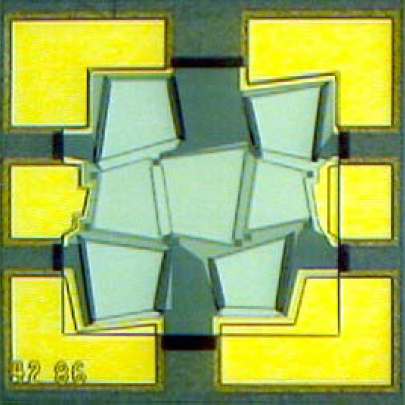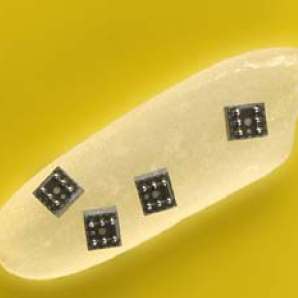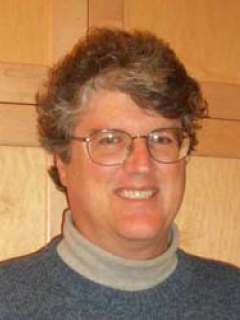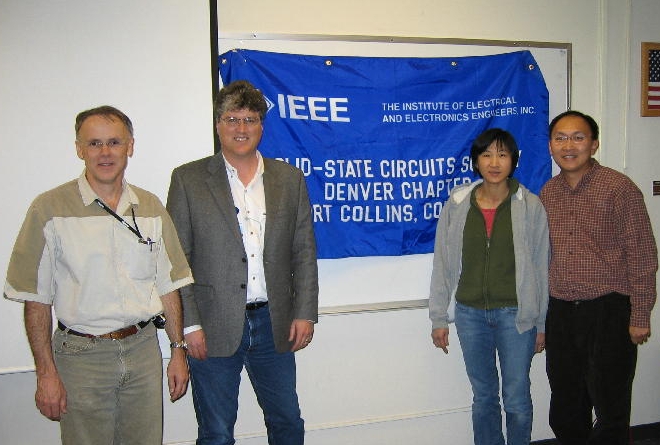|
 |
 |
|

Technical
Seminar |
 |
 |
|
|
|
Film Bulk Acoustic Resonators (FBARs)
|
|
|
DATE/TIME
Tuesday, March 1, 2005
(4:30pm to 6:00pm)
|
|
PLACE
|
|
|
|
DIRECTIONS
|
-
To
Colorado State University
-
To
Physiology Building Room 103
-
Physiology
Building is on the south side of campus, at the NE corner of Centre
Avenue and Lake Street. From I-25, it is easiest to take
Prospect Road westbound. After passing College Avenue, turn
right onto Centre Avenue and park at parking lot on right side of road
before reaching Lake Street.
-
Park south of
Physiology Building -- free after 4pm
|
|
COST
Free. As always, pizza &
drinks will be provided.
|
|
|
ABSTRACT This
talk is about high-Q thin Film Bulk Acoustic Resonators, or FBARs, for
wireless RF applications. FBAR filters and resonators were first
demonstrated in 1980 and after 8 or 9 years of research in this field,
FBAR was abandoned. In 1993, a small effort was started at
Hewlett-Packard Laboratories on FBAR resonators and filters. In
1999, Agilent Technologies published a working duplexer for the PCS CDMA
band. Four years later, Agilent FBAR had made over USD$100M of
revenue selling just the PCS duplexer. The speaker will go over the
physics of FBAR, provide a chronology of FBAR development inside
Hewlett-Packard and Agilent, and describe some of the
"geopolitical" forces surrounding FBAR and its role in future
radio architectures. |
|
 
|
|
FBAR receive chip
FBAR GSM filters on a grain of rice
|
|
|
DR. RICHARD
RUBY (Agilent
Technologies, San Jose, CA)
|

|
Richard Ruby received his PhD from the
University of California, Berkeley, CA, in 1984 in the field of
superconductivity. He joined Hewlett-Packard Laboratories and worked
in the areas of electron beam lithography, X-ray lithography, advanced
packaging, and superconductivity. In 1993, he began researching FBAR
technology as a means of making high-Q ultra-miniature filters for RF
applications. In 1999, Dr. Ruby joined Agilent (a spin-off from
Hewlett-Packard) and moved to the Wireless Semiconductor Division of
Agilent as Director of Technology. Since 1993, he has focused on
FBARs in the field of RF communications, particularly filters and
duplexers for wireless handsets. |
|
In 2001, his innovations in FBAR
technology led to worldwide recognition including four industrial awards
from the wireless industry, EDN Magazine's Innovation of the Year
award, Wireless Design & Development Magazine's Technology of
the Year award, Most Innovative Semiconductor Product of 2002 for
Communication Applications from Semiconductor Insight, and Finalist
for Product of the Year from Small Times Magazine for the FBAR
duplexer. Dr. Ruby has authored 39 patents and has given
over ten invited talks on FBAR. He was the 2001 recipient of the
prestigious Barney Oliver Prize at Agilent Technologies and became Agilent
Fellow in 2002. |
|
|
PHOTOS
Courtesy of Bob Barnes & Shannon Sawyer |

|
|